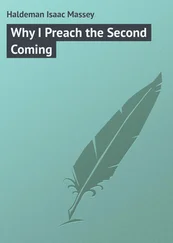Vilho rubbed his hands together. He wanted to pray for the deliverance of Pohamba’s soul, but wouldn’t dare do it in front of him.
8. A SPOT NORTHWEST OF OTJIMBINGWE
You claim that you are sorry that I do not accept German protection. You seem to think that I am guilty even of this. . This is my answer: I have never in my life seen the German emperor and am sure he has never seen me.
HENDRIK WITBOOI, 1885
In the event you should intend to fight me further, I have to ask your Highness to provide me with two more boxes of Henri Martini cartridges so that I can respond to your attack. So far we have not really fought each other… A great and honest and civilized nation such as yours should not stop ammunition for its enemy. In the event that I should have enough ammunition, you are welcome to conquer me.
HENDRIK WITBOOI, 1893
The story goes that it was the most savage raid on colonial forces in the whole bloody history of German South-West Africa. Hendrik Witbooi and his men — answering a call from God — made a surprise attack on the German base at Otjimbingwe. Five thousand imperial troops led by Herman Goering, hapless father of the more successful future reich marshal, were stationed in the barracks, fast asleep on a sweltering summer evening. The raid was so successful that Goering himself was forced to flee and, in what must have been a particular humiliation, reduced to begging the protection of the British garrison at Walfish Bay. Not surprisingly, the Germans did not allow the attack to go unanswered and stormed back three months later, following the arrival of fresh recruits from the Fatherland. Witbooi retreated to the uninhabitable sand wastes and clay buttes northwest of Otjimbingwe.
One Monday morning Obadiah, carrying a long stick, marched his class, thirty-eight Standard Threes in those powder-blue button-downs, holding hands, two by two, away from school, up the dry riverbed. After trudging through the sand for what felt to the boys like twelve days, Obadiah abruptly stopped. He jammed his stick into the sand.
“Cherubim! Who can tell me what makes this place significant?”
None of the boys said a word. They tried not to even breathe. At that time of day, late morning in March, everything looked bleached. The sand, trees, bushes, even the cows, were all the color of plaster. Above, the sky allowed for no variation in the glare. All around the boys was semidesert sameness, and they were hungry, so so hungry. Teacher had made them skip morning break for this expedition. Pocked across the dry riverbed were hoof- and footprints accumulated since the last time it rained. Plus all the goat shit in neat little piles, like tiny pyramids. What here could be worth all that walking?
“Fortitude,” Obadiah said. “An important word, leprechauns. It means having the courage to fight when your body says, Asseblief makker . No more, I beseech You. Hendrik Witbooi had it. Write it in your notebooks when you return to class. Use it in a sentence. For instance, ‘Witbooi had fortitude, indeed.’ Look at this staff, my children, alone, here in the sand, silent as a pillar. Even fortitude needs to rest sometimes. The great Hendrik Witbooi, after fleeing the garrison at Otjimbingwe, rode northwest toward Goas — yes, even Goas has a place in history — and he stopped at this precise spot.”
The boys looked languidly at the stick leaning crookedly out of the sand.
“This spot! Even fortitude must stop and take a breath of pure desert air, this air of freedom. Listen, boys. You hear them? The Schutztruppe in menacing pursuit. Think on it, little men of Goas. Of being chased, of riding for your lives. But think also of all those killed in their beds. Yes, criminals, colonizers, but also men with beating hearts. Death to them, absolutely. But with their heads on their pillows? Was it not something Witbooi might have learned from the Germans themselves? Take a pause. A great man rested here. Was it a victory?”
Obadiah seized the stick, hoisted it to his shoulder, and scanned the line of boys.
“Hendrik Witbooi was the greatest shot with a gun since Jonker Afrikaner’s father.” Obadiah lowered his rifle. “He was also a Christian down to his eighty-year-old feet. I repeat, think on it. A heroic act of independence? Certainly. But the beginning of a time of slaughter as well. I bring you here to Witbooi’s place of rest to remember the price of one man’s greatness.”
With this, Obadiah thrust the stick back into the sand and began to walk slowly away, back toward the school. Over his shoulder he called, “I provide no answers.”
They stood and watched him. They’d heard about this from the boys in the grades above, about drunk Master Obadiah’s stick in the veld, but now that they were out there alone, they did what other boys before them had also done. They stared at it. Now more awake, they stared at that stick. All thirty-eight boys, silently, still gripping hands. One boy considered knocking it down. Another thought of taking it and using it to smack Reginald Eiseb, his enemy. Another, of riding on it, as he’d seen a white witch do in a picture book. But one boy, Jacobus Tivute, listened for the pant of a hunted man and actually started to hear it. The noise was coming from the boy whose hand he held, an asthmatic, but it didn’t matter. Jacobus was hearing that awful gasping. The Germans will hunt Witbooi to the end of the earth. Then they’ll shoot him seventeen times at Vaalgras. He’d heard that story from his father. Looking around at the cragged trees, the tangled patches of sharp bushes, the wide, waterless river snaking away ahead, Jacobus thought, Bravery is more hell than cowardice. He hoped to grow taller and never have either, and he swore to himself he’d remember this. Then Jacobus said a short prayer asking God, politely, to have mercy and let him leave this desert place one day so he could go live in a town. After that he turned from the stick and, with his wheezing partner in tow, followed his teacher.
Sometimes, as now, on the edge of morning, she hears the stifled cries of the Hebrew women giving birth in secret. Pharaoh’s men are tossing boys into the Nile. Antoinette wakes and stands in the dark and prays for them, and for her own lost, her first, a daughter, taken away before she had a name. Aren’t daughters supposed to be allowed to live?
She bows her head to pray, but she will never kneel. Not in church, not anywhere. Since she was a child, she’s known this. To ask something of God is not a humble act. It’s a demand. Why try to disguise it by doing it on your knees?
Eyes closed, she listens for the birth cries of all the lost children. With her rheumatic fingers, she makes her hands into a basket; but she will never kneel. She waits for the noise of the cries to fade, the voice of her own blood and the blood of so many others.
They never named her. You don’t name a child until you hear it scream, and this one was born silent. The death certificate, the only relic holy enough to store in her Bible, is written in highfalutin Afrikaans. Herewith on said day the following unnamed personage… They paid ten rands for it. Ten rands for a fact anybody could tell just by listening to her not scream. Still, there are days when she takes it out and rereads. The paper is worn away from rubbing. At the folds are dirty creases; the certificate is breaking apart. She thinks how it must have lasted longer than her daughter’s bones.
Born in peace, weren’t you?
*
She leaves her house and her sleeping husband (asleep again in his chair) and heads across the sand to the boys’ hostel. It will be another half hour before the light spills over the mountains and floods the veld.
Читать дальше












